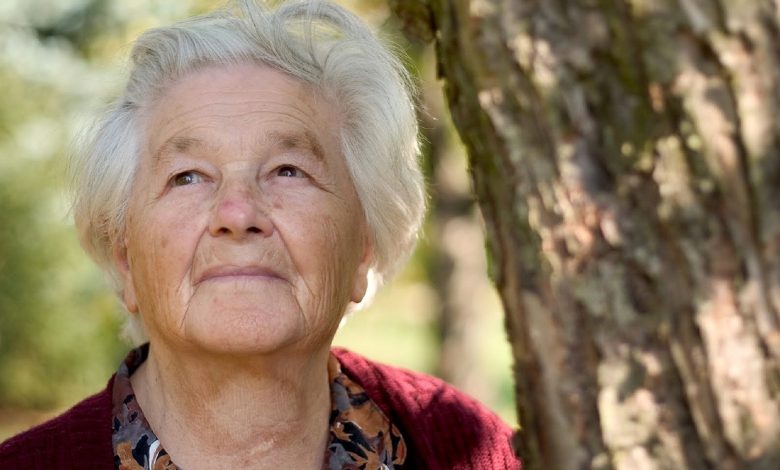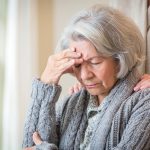Common Gabapentin Side Effects In Elderly Women

Gabapentin is a prescription medication that belongs to the class of anticonvulsants, primarily used to treat seizures and neuropathic pain. Gabapentin can also be prescribed for various off-label uses, such as anxiety, insomnia, and alcohol withdrawal.
As an elderly woman, taking any medication requires more caution and attention to the side effects it may cause. This article will discuss the potential side effects of Gabapentin in elderly women, their causes, and what you should do if you experience any of them.
What is Gabapentin?
Gabapentin is a medication that works by altering the levels of neurotransmitters in the brain. It increases the levels of gamma-aminobutyric acid (GABA), a neurotransmitter that decreases brain activity, reducing the risk of seizures and anxiety.
The medication was first approved by the FDA in 1993, and since then, its use has expanded to treat various conditions. Gabapentin can be prescribed alone or in combination with other medications to achieve the desired results.
Common Side Effects of Gabapentin
Gabapentin’s common side effects can include dizziness, drowsiness, nausea, vomiting, and headache. These side effects are often mild and go away on their own after a few days or weeks of starting treatment. However, elderly women are more susceptible to these side effects, and they may experience them more severely.
Dizziness and drowsiness can increase the risk of falls in elderly women, leading to fractures and other injuries. If you experience these side effects, you should avoid activities that require alertness, such as driving or operating heavy machinery. Nausea and vomiting can cause dehydration and electrolyte imbalances, which can be dangerous, especially in the elderly.
Serious Side Effects of Gabapentin
While rare, gabapentin can also cause serious side effects, especially in elderly women. These side effects can include:
- Respiratory Depression: Gabapentin can cause respiratory depression, a condition where the breathing rate decreases, leading to low oxygen levels in the blood. This can be especially dangerous in elderly women who have respiratory problems, such as chronic obstructive pulmonary disease (COPD) or sleep apnea.
- Suicidal Thoughts and Behavior: Gabapentin has been associated with an increased risk of suicidal thoughts and behavior. This risk is higher in elderly women who have a history of depression or other mental health disorders. If you experience any changes in your mood or behavior, such as feeling sad or hopeless, contact your healthcare provider immediately.
- Liver Damage: Gabapentin can cause liver damage in rare cases, leading to jaundice, abdominal pain, and other symptoms. Elderly women with pre-existing liver problems may be more susceptible to this side effect.
- Blood Disorders: Gabapentin can cause blood disorders, such as leukopenia (low white blood cell count) or thrombocytopenia (low platelet count). These disorders can increase the risk of infections, bleeding, and bruising. Elderly women may be more susceptible to these side effects due to their weaker immune systems.
- Hypersensitivity Reactions: Gabapentin can cause hypersensitivity reactions, such as angioedema (swelling of the face, lips, tongue, or throat) or Stevens-Johnson syndrome (a severe skin rash). These reactions can be life-threatening, and elderly women may be more susceptible to them due to their weaker immune systems.
Causes of Increased Gabapentin Side Effects in Elderly Women
Gabapentin’s side effects in elderly women can be caused by various factors, including:
- Age-related Changes: As women age, their metabolism slows down, and their liver and kidney function decreases. This can affect how their body processes medications, leading to higher levels of the drug in their system and increased side effects.
- Polypharmacy: Elderly women often take multiple medications to manage various health conditions, increasing the risk of drug interactions and side effects. Gabapentin can interact with other medications, such as opioids and benzodiazepines, increasing the risk of respiratory depression and sedation.
- Pre-existing Health Conditions: Elderly women may have pre-existing health conditions, such as diabetes, hypertension, or liver disease, which can increase the risk of gabapentin side effects. Gabapentin can also worsen certain conditions, such as respiratory problems or cognitive impairment.
- Dosage and Duration of Treatment: The dosage and duration of gabapentin treatment can affect the risk and severity of side effects. Elderly women may require lower doses of the medication due to their weaker metabolism and increased risk of side effects.
How To Manage Gabapentin Side Effects in Elderly Women
If you experience any side effects while taking gabapentin, you should contact your healthcare provider immediately. Your provider may adjust the dosage or switch you to a different medication to manage the side effects.
To minimize the risk of gabapentin side effects in elderly women, healthcare providers may consider the following measures:
- Starting with a Low Dose: Elderly women may require lower doses of gabapentin to achieve the desired results while minimizing the risk of side effects.
- Monitoring for Drug Interactions: Healthcare providers should monitor for potential drug interactions when prescribing gabapentin to elderly women. They may also consider alternative medications or adjust the dosage of other medications to avoid interactions.
- Regular Follow-up: Elderly women should have regular follow-up appointments with their healthcare provider to monitor their response to gabapentin and assess for any potential side effects.
- Lifestyle Modifications: Elderly women can reduce the risk of falls by modifying their lifestyle, such as using assistive devices, wearing non-slip footwear, and avoiding hazards in the home. They should also maintain a healthy diet and exercise regularly to improve their overall health.
Conclusion
Gabapentin is a useful medication for managing seizures and neuropathic pain, but it can cause various side effects, especially in elderly women. These side effects can range from mild to severe, and they may require prompt medical attention.
To minimize the risk of gabapentin side effects in elderly women, healthcare providers should start with a low dose, monitor for drug interactions, and have regular follow-up appointments. Elderly women can also reduce their risk of side effects by modifying their lifestyle and maintaining a healthy diet and exercise routine.
If you are an elderly woman taking gabapentin and experiencing any side effects, contact your healthcare provider immediately to discuss appropriate management options.





